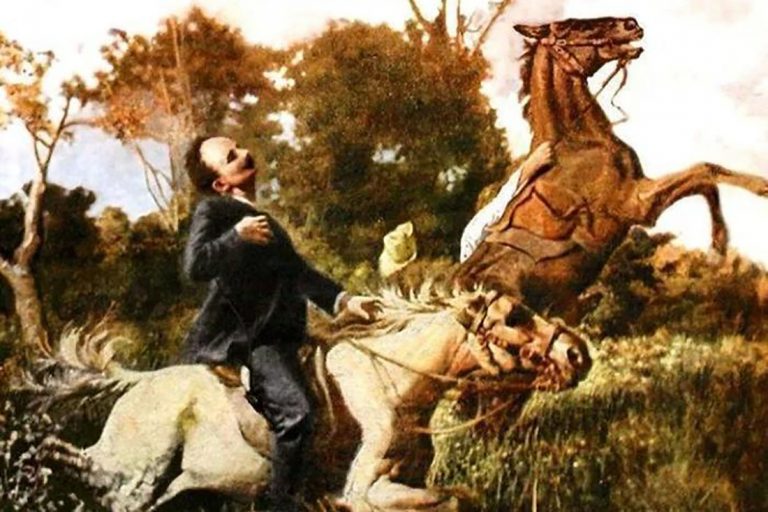On April 15th, 1895, José Martí, by agreement of the Board of Generals, at the proposal of Máximo Gómez, was promoted to Major General of the Liberation Army. However, the deserved promotion did not prevent a part of the mambisado from calling him “President.”
Days later, on May 19th, the lieutenant in charge of his custody, Ángel Perfecto de la Guardia Bello, tried in vain to hold his momentum. Perhaps the officer did not know that Martí was hurt, without losing serenity and strength, by the rude treatment received from General Antonio Maceo during the interview between him, the eastern Titan and Gómez, at La Mejorana sugar mill on May 5th. By the way, Gomez seemed upset that the soldiers called him Delegate, or at best “President.”
His arrival
Martí had reached the vicinity of the Cauto River and its tributary the Contramaestre, swollen and turbid. More excitement in the Dos Ríos camp known by Bija, which remained from the ‛68 war. There they handed him a jug with boiled fresh water, with fig leaves. Here he wrote to his friend Mercado his deepest feelings for Cuba and for America. He was in a hurry in writing, it was necessary to “prevent in time” that the United States took control of Cuba and the rest of the Antilles and mutilated their independence and sovereignty…
The letter was left unfinished because of taking care of Bartolomé Masó and his 300 horsemen, followed by Gómez and 30 warriors, then a meeting of chiefs and soldiers. The meeting closes with patriotic speeches by the three chiefs, and a picnic lunch under the makeshift ranches.
The fateful day
He wore a dark jacket, because his shirt was wet, and white linen pants, a beaver hat, and black boots; around the neck the cord of the nacre cape revolver.
Alarm! A Spanish column is approaching. It was led by Colonel Ximénez Sandoval, a Freemason, who advanced on the fresh trail left by the Gómez horsemen, and who accompanied a column of 600 soldiers from the Second, Fifth and Ninth Peninsular Battalion and a section of the Hernán Cortés. The pilot Antonio Oliva pointed to the riflemen: the horseman.
Marti was no longer interested in his authority among the liberating forces, be it as Delegate, President or because of the earned promotion to Major General.
He wrote that he would depose “before the Revolution that I have started, the authority that emigration gave me, and it was complied with inside, and we must renew according to its new status, an assembly of delegates of the visible Cuban people, of revolutionaries in arms.”
However, more than that concern carries another, the United States is the greatest threat and what forced him to put his foot on the stirrup and to go in search of the enemy squad, disregarding Gómez’s order.
In a risky situation to the life of an essential man, the voice dictated by the superior’s intuition cannot be ignored. Thus he fell in combat by the three bullet wounds before the tense soldiers of the two sides.
In Dos Ríos …
The little sabaneta from Boca de Dos Ríos was stained with his Apostle blood. It was not suicide, did he want to prove his manhood and his pride as a Cuban? Did he want to show his great courage as a warrior that contained his authority?
He carried too much anxiety and fire in his chest, after a long period of preparation of “necessary and brief war”, of which he was the maximum organizer and initiator.
He believed that the moment of supreme duty had arrived, of the hour of transfiguration in the example, the first in the position, the guide and vanguard of the fight; and not to achieve glory, but to win the honor of fighting for his beloved Cuba, not thinking about death but about how much still needed to be done. That is a lesson that the Master leaves us.
Translated by: Aileen Álvarez García






